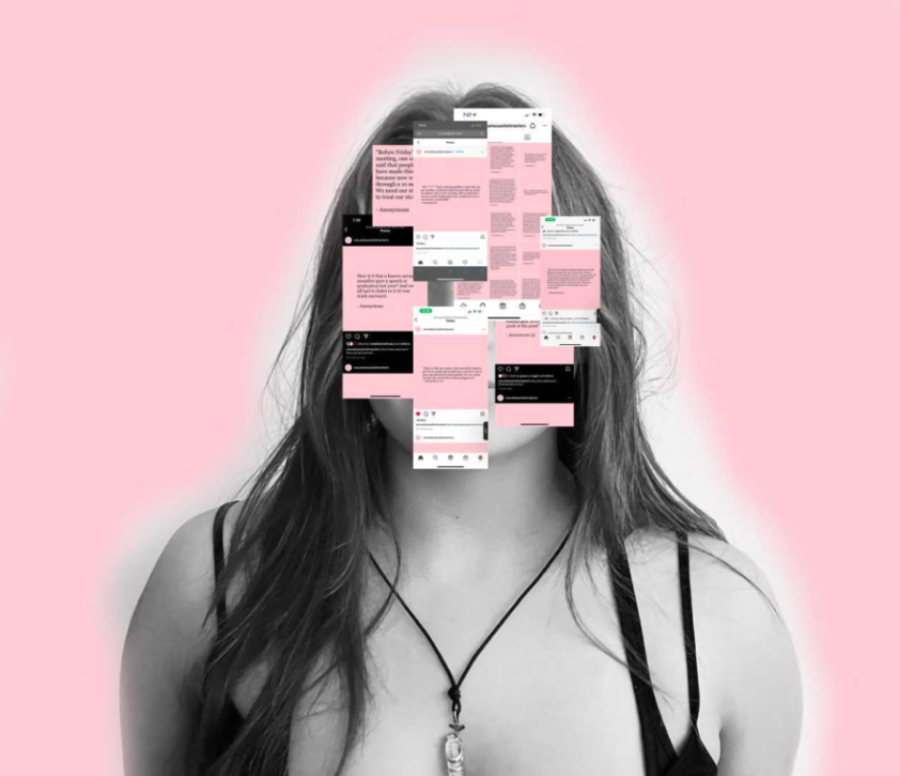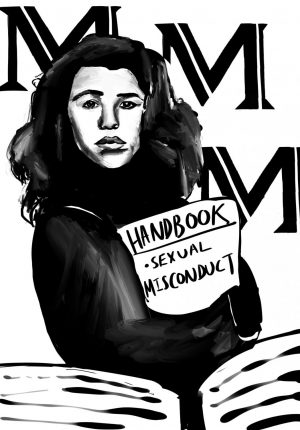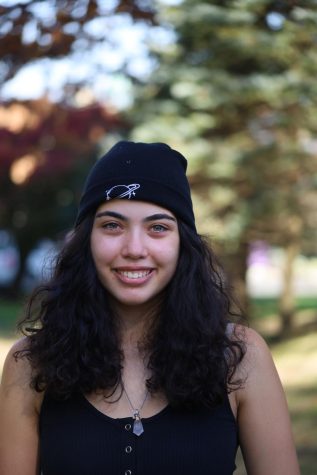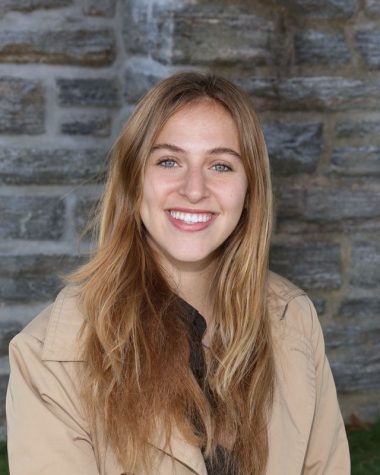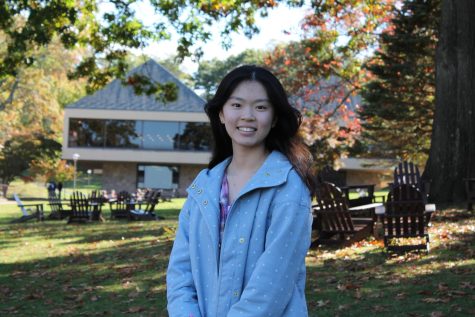Instagram account brings attention to sexual misconduct
@sexualassultatmasters has been taken down after posting 35 student and alumni anecdotes of experiences with sexual misconduct on their anonymously-run Instagram page.
September 22, 2022
On Sept. 20, @sexualassaultatmasters, an anonymous student-run Instagram account that shared stories of sexual misconduct violations (including harassment and assault) within the Masters community, officially shut down and has been deleted from the social media platform.
The account was up for a little over one week, gathering a following of 430 people and posting 35 student and alumni anecdotes of experiences with sexual misconduct. It announced its close with its final post, stating: “With Ms. Danforth addressing the accounts and the action being taken, this account is coming to a close. The purpose of this account from the beginning has been to get the school’s attention to find a place for people to share their stories. Now that we’ve done that, I feel that my job here is done. If you still want to share your story, please use the incident reporting tool or speak to Ms. Danforth.”
In an anonymous interview with one of the students behind the account, the student revealed that the inspiration behind starting @sexualassaultatmasters was their personal experience as an survivor of sexual misconduct, harassment or assault.
“I was recently reading my sixth grade journal. I had been going through microaggressions for a long time, and I would write about them there. Back then, I thought those microaggressions were strange, but now I see it was straight up sexual harassment,” the anonymous student said in a DM interview. “I realized that someone needed to stick up for girls at this school who were being put in uncomfortable situations and it [the account] took off from there.”
While the @sexualassaultatmasters account has sparked an important conversation amongst the community, concerns surfaced that some of the recent anecdotes that have been posted may have been untrue, and therefore take away the focus from survivors telling their stories and being taken seriously. Additionally, none of the anecdotes made on the account can be properly investigated as they have not been officially reported to the school.
Head of School Laura Danforth addressed the presence of the account on the mornings of Friday Sept. 16, and then again on Tuesday, Sept. 20. In her second address, she acknowledged that while much work had been done to improve the policies and procedures the School had developed, more work needed to be done to effectively communicate these tools to the student body, in part because of the disruption to our community life with the pandemic. In addition to making a commitment to increase awareness, she also raised concerns about reports that some of the posts may not have been true. Danforth also held open office hours throughout last week and the week for students to voice their concerns, suggest solutions and potentially file reports.
“A lot of kids were coming to talk to me, all that were being very protective of themselves, of their friends and of the school. And I was just concerned. I was concerned that the account managers weren’t more careful and I was concerned that people would treat someone in a way where it could damage who they are, their relationships with the people in the school and with their family. To speak untruths about someone else is never okay. No one, with the exception of the people involved in an incident, knows the full truth,” Danforth said.
Senior Claress Bahamundi, co-founder of the Mental Health @ Masters Initiative, has been working with students and with the administration to support student mental health as posts on the account came out.
“The account has provided means for a major culture shift regarding the victims of sexual misconduct at Masters. While providing a safe place for students to share their experiences, it also isolated many who are not comfortable yet with stepping up to share their stories due to triggering language, and inability to take a breather from the topic,” Bahamundi said. “The influx of untrue remarks may have felt invalidating to many of the victims opening up to share their very real stories.”
Masters has worked to reform the sexual harasment policy, especially for the past four years. Dean of Students Jeff Carnevale took time at Morning Meeting to explain the Masters policies and procedures about reporting sexual assault and harassment. He explained that our policies are nationally recognized. However, some students feel as though the policies and procedures have not been made clear to them.
Ava Bashew, a senior, said, “I am going onto my fourth year at Masters, and was unaware that we even had a ‘gold standard’ sexual assault policy. I am glad it’s being communicated now, but it feels a little late.”
In 2019, a group of Upper School administrators completely reconstructed Masters’ sexual misconduct policy with the help of Director at Campus Outreach Services and sexual assault survivor/activist Katie Koestner. The purpose of the reconstructed policy is to prioritize open communication about misconduct on campus, to build a transparent administrative procedure for reviewing sexual assault or harassment reports and to take appropriate disciplinary action if needed according to the Upper School Family Handbook. The policy changes were in response to student advocacy and discussions that had taken place. This brought the school to the policy that exists today.
Recalling the sexual misconduct policy changes, Carnevale said, “In that spring [2019], there was a real call to action by students saying that our policy was not any good. And that we needed a transparent process policy that has a process that can be repeated, that it’s really clear that people’s rights are supported on both sides. And so that’s what we did. And we’ve made a lot of progress as a school in terms of where we were just four years ago.”
Masters’ updated Sexual Harassment, Sexual Misconduct and Child Abuse Prevention Policies, which can be found in the Upper School Family Handbook, pages 13-23, details a number of different reporting methods and counseling options for students who want to report or receive help for sexual misconduct. These include anonymous reporting through the Incident Reporting Tool — which may limit the School’s ability to investigate and take corrective action, formal reporting to the Dean of Students Office and Masters faculty or staff assisting the student in contacting the authorities or Child Protective Services.
“There’s always work to be done. There’s always work to improve. And I think the Instagram account highlights aspects of the school where we need to continue to improve,” Carnevale said.
“And we do that by working together with each other where students are saying, ‘Here’s what’s going on, here’s what we need’, and then the administration works to meet those needs as best we can. But dialogue is the most important part,” he added.
Danforth encouraged all students to speak to trusted adults and to utilize her as a resource to voice any current or future concerns.
“I cannot think of an issue or a topic where if a student came to my door to say, ‘Can we talk about something that is out of control on campus?’ or ‘Can we talk in confidence about something that you need to be aware of?’ I would not turn them away.” Danforth said.
She continued, “ I’ve been doing this for over 40 years now, and there’s not an issue where I would not want to sit down, roll up my sleeves and handle it with the students, face to face. I am a relational leader. I always have been. I don’t know how else to lead other than through relationships. But I cannot have a relationship with anonymous posts on social media.”




